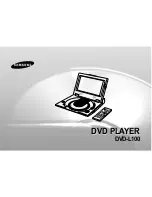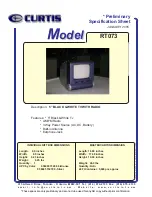
SRG-4400 User Manual (Iss. 06)
GPS Option • 14–9
Phase Locking
Phase locking can be established a few minutes after frequency locking. Phase lock is achieved
when the long-term frequency error is less than 0.1ppm.
Signal Requirements
The SRG-4400 with GPS Receiver can achieve Cold Start acquisition with a signal level of
-147dBm at its input. This means the SRG-4400 can find the necessary satellites, download the
necessary ephemeris data and compute the location within a 5 minute period.
The SRG-4400 will display a reported C/No of 40dB-Hz for a signal level of - 130dBm into the
RF input.
Each GPS and GLONASS satellite presents its own signal to the SRG-4400, and best
performance is obtained when the signal levels are between -125dBm and -117dBm. These
received signal levels are determined by:
• GPS and GLONASS satellite transmit power
• GPS and GLONASS satellite elevation and azimuth
• Free space path loss
• Extraneous path loss such as rain
• Partial or total path blockage such as foliage or building
• Multi-path caused by signal reflection
• GPS/GLONASS antenna
• Signal path after the GPS/GLONASS antenna
Even though for frequency and phase locking the SRG-4400 does not require a good 3D fix, it
still requires three satellites in view to produce a fix.
Required Time Corrections
From a GPS Receiver, the SRG-4400 Master Clock can derive UTC and also add the appropriate
time offset and provide corrected local time.
contains a list of the various corrections
which need to be made by the SRG-4400.
System Noise Floor
As mentioned earlier, the SRG-4400 will display a reported C/No of 40dB-Hz for an input signal
level of -130dBm. The C/No number means the carrier (or signal) is 40dB greater than the noise
floor measured in a 1Hz bandwidth. This is a standard method of measuring GPS receiver
performance.
Table 14.3 Required Time Corrections
Offset
SRG-4400 Update
1
Earth Speed Drift
in one day
1ms
Leap second corrections are made approximately
every 18 months as determined by International
Earth Rotation Service (IERS).
2
Local Time
User defined
The user usually defines the offset from UTC at
time of installation
3
Daylight Saving
1 hour
Twice per year
Summary of Contents for SRG-4400
Page 1: ...SRG 4400 Master Reference and Test Signal Generator User Manual...
Page 8: ......
Page 54: ...4 10 Operating Basics SRG 4400 User Manual Iss 06...
Page 116: ...5 62 Menu System SRG 4400 User Manual Iss 06...
Page 140: ...8 4 Certifications and Compliances SRG 4400 User Manual Iss 06...
Page 146: ...9 6 Connector Pinouts SRG 4400 User Manual Iss 06...
Page 164: ...11 14 Test Patterns SRG 4400 User Manual Iss 06...
Page 168: ...12 4 Connecting via DashBoard SRG 4400 User Manual Iss 06...
Page 186: ...14 12 GPS Option SRG 4400 User Manual Iss 06...











































